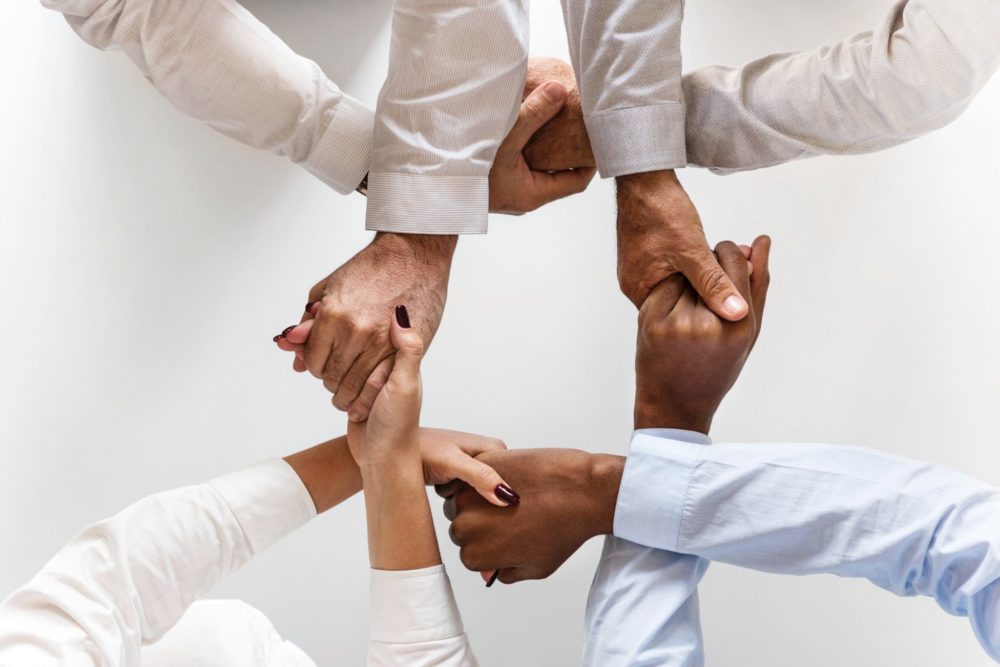The Covid-19 pandemic has prompted endless discussions about the importance of making changes for the better across all sectors, and the apparel industry is no exception. There has been great discussion at all levels of the industry about improvements that can and must be made, both in terms of environment and social impacts. These are the very issues that Fashion Takes Action has been addressing for 14+ years so we are thrilled that the industry is increasingly taking action and that we can help to amplify and accelerate change through platforms like our WEAR webinar series.
One of the companies that has been involved in optimizing supply chain processes since way before the onset of Covid-19 is Bluesign. In fact, last year marked the 20th anniversary of Bluesign – an impressive milestone when you consider that supply chain transparency and sustainability is a fairly new consideration for mainstream brands.
More and more consumers are demanding oversight and transparency from brands, and the industry really has no choice but to meet these demands – not only around how and where their clothes are made, but also who made them and what ‘ingredients’ were used.
Officially, “Bluesign is a system that provides safer and more sustainable environments for people to work in and everyone to live in. Powered by a holistic approach, Bluesign traces each textile’s path along the manufacturing process, making improvements at every stage from factory floor to finished product. As a solution provider, Bluesign acts as an independent verifier to secure trust and transparency.”
So what is stopping every company from becoming a Bluesign System Partner? According to Jill Dumain, CEO of Bluesign, the biggest barrier for most companies is the ability to prioritize sustainability and commit to transparency in the supply chain. In a recent interview between Jill and Kerry Bannigan, Founder of the Conscious Fashion Campaign, Jill explained that there is so much information today that can be overwhelming for companies, to the point that they become paralized by the question of where to start, and what aspect of sustainability should be prioritized (an issue FTA addressed through the development of the Sustainable Fashion Toolkit built in collaboration with PwC).
Recognizing this challenge, Bluesign encourages companies to do an assessment of the brand’s entire supply chain, providing a gap analysis and a roadmap to bridge those gaps. While they know that their assessment is likely to reveal many problem areas, they are committed to working with clients by educating them on what the hot spots are, building a strategy for managing the issues, and helping them prioritize these issues in order to mitigate the greatest risks.
Bluesign maintains that whether you’re an entrepreneur, an SME or a C-Suite decision maker for a large global brand, their program is a step-by-step process that is suitable for every size of business. They likewise recognize that you can’t do everything at once and that there are different barriers for everyone. But no matter where you are at, Bluesign maintains that you can start making small incremental changes.
Jill explains how Bluesign encourages companies to be bold and brave in their sustainability efforts; to talk about their problems and their plan to fix them. Being transparent in a meaningful way allows consumers to better understand the challenges and the amount of work that companies have to do to bring sustainability initiatives forward.
There appears to be an opportunity, post-Covid, for the industry to reprioritize the business model. Either by beginning to right past wrongs, or building on the positive changes that have been made, Bluesign System Partner brands are responding to consumer demand for greater transparency by establishing better relationships with suppliers; they connect with the textile suppliers, and all the way down to the chemical manufacturers to make sure people are being taken care of through responsible production and occupational health and safety practices that meet Bluesign criteria. “In manufacturing, we are conditioned to talk about supply chain – or value chain – as a “system” but it’s easy to forget that this system is essentially a long chain of human relationships. “When you can see and meet the farmer growing your cotton the product takes on a different meaning than just buying a bale of cotton from somewhere in the world. It’s not just people far away in those factories – there are faces on those people. They are humans!”
Jill believes that Covid-19 has shone a spotlight on the many ways the industry has gone wrong, but she strongly believes that it has also given us a pathway towards something better. At its core, Bluesign is working to help the industry shift its thinking; if we can focus on the supply chain being about people and not things, it will hopefully allow the fashion industry to do, and be, better.
Wondering where to start?
If you are a brand, tune in to our WEAR webinar on April 21st on ‘Building a Responsible Fashion Value Chain’, presented in collaboration with Bluesign.
If you are a consumer, you can find a list of Bluesign System Partners here https://www.bluesign.com/downloads/referenzliste/bluesign-reference-list-total.pdf and use this as a guide when you shop.

